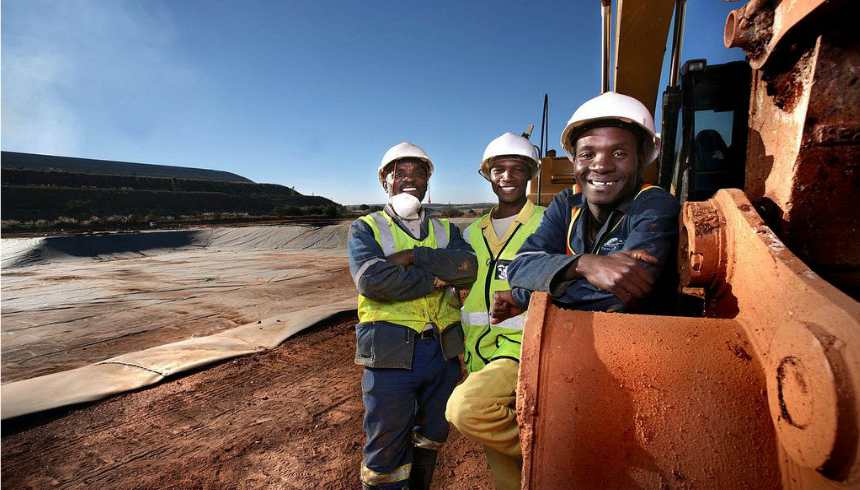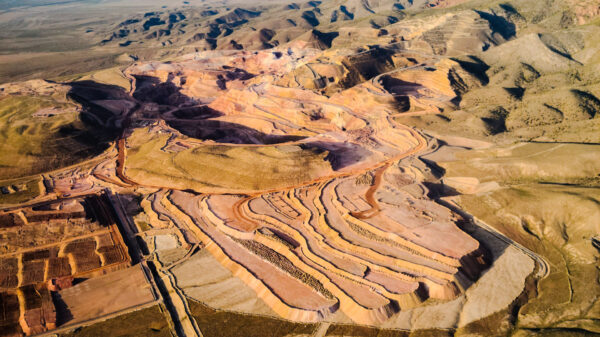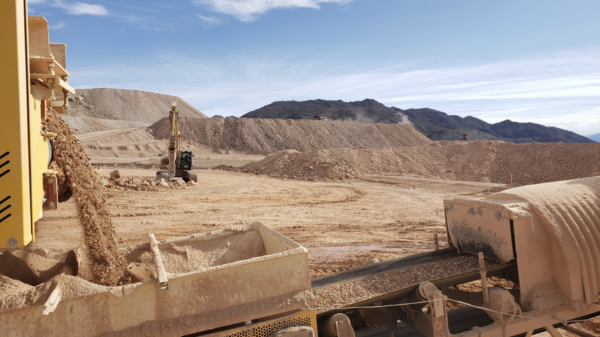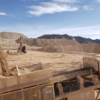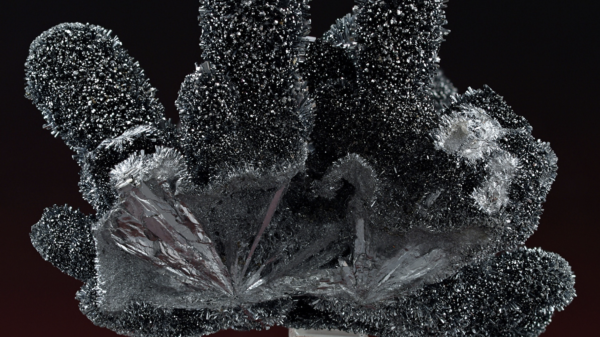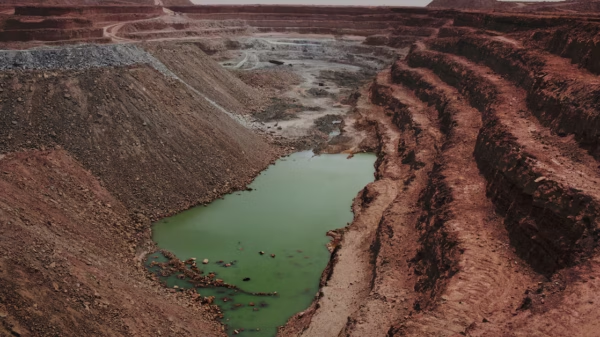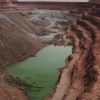Africa has been the resource hub of the first world for the better part of a thousand years. Pick a first world country and odds are good they have been deep into the dark continent, yanking the resources away from the people who live there and taking it home.
That hasn’t stopped, either.
It would be safe to say that Africa has become a resource-oriented battleground between the United States and China. Both powers compete heavily for access to the continent’s vast natural resources, including minerals critical for technology, energy, and manufacturing—like cobalt, lithium, copper, and rare earth elements.
China has aggressively expanded its presence through infrastructure investments, mining deals, and loans, often securing long-term resource concessions. The United States, while less dominant in direct investments, pursues strategic partnerships, development aid, and diplomatic influence to maintain access and counterbalance China’s growing footprint.
Additionally, this competition extends beyond economics into geopolitics, as both countries vie for influence over African governments, regional security arrangements, and international institutions. African nations often navigate this rivalry to attract investment while seeking to preserve sovereignty and maximize benefits.
That’s why mining in Africa involves numerous risks, especially when dealing with unstable political regimes. Governments can change suddenly through coups, elections, or social unrest. This unpredictability creates uncertainty for companies operating in the region. Additionally, new regimes often revise contracts and regulations, affecting mining operations and profitability.
Companies may face sudden nationalization or expropriation of assets without fair compensation. Furthermore, unstable governments can impose unexpected taxes, royalties, or levies to increase revenue quickly. These fiscal changes often come without consultation, increasing financial strain on businesses.
Here are five recent examples of the push and pull of doing business in Africa.
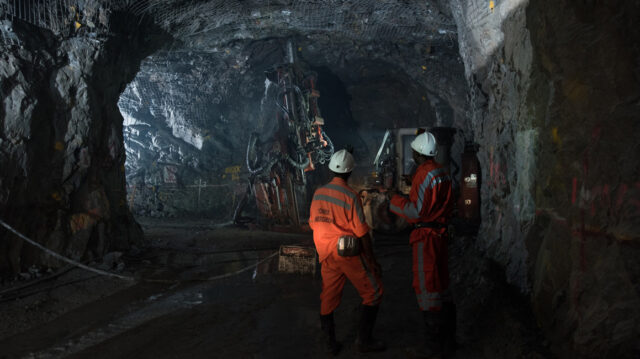
Underground at the Loulo mine in Mali. Image via Barrick Mining.
Mali – Loulo Gounkoto Gold Complex (Barrick Mining)
From late 2024 to mid-2025, Mali took aggressive actions against Barrick Mining Corp (TSE: ABX) (NYSE: B) Loulo-Gounkoto gold complex, one of the most productive mines in West Africa. The complex accounts for roughly 14 per cent of Barrick’s global output. The conflict arose over alleged unpaid taxes, the new 2023 mining code, and disputed contract terms.
In November 2024, Mali blocked all gold exports from Loulo-Gounkoto and seized approximately three tonnes of gold, valued around USD$245 million. The government redirected this gold to a state-controlled bank. In response, Barrick suspended operations in January 2025 after a court issued an interim order prohibiting all shipments. Additionally, in June 2025, a Malian court appointed a former health minister as the provisional administrator of the mine for six months. Barrick appealed these decisions, arguing they violated existing legal protections and ongoing negotiations.
Barrick suspended operations in January and removed the mine from its 2025 production forecasts. The company estimates the suspension and gold retention cost roughly USD$1.2 billion in annual revenue, about 11 per cent of its earnings before interest and taxes. The workforce of around 8,000, mostly Malian, remained paid but idle. This situation also strained local businesses and the economy.
Mali aims to use these measures to renegotiate terms under its 2023 mining code. The new rules increase tax rates, raise government equity from 20 to 35 per cent, and introduce new royalties. Negotiations have allowed Barrick to repatriate 20 per cent of its earnings, but the government seeks USD$370–438 million in back payments and penalties.
Barrick launched arbitration with the International Centre for Settlement of Investment Disputes and filed for provisional measures.
Read more: Promising antimony find in Nevada strongly positions NevGold Corp in minerals race
Read more: NevGold’s long intervals of antimony & gold mineralization turn heads
Mali again – Fekola gold complex (B2Gold)
In 2023 and 2024, Mali delayed B2Gold Corp‘s (TSE: BTO) (NYSE: BTG) plans to expand its Fekola gold complex. The government imposed state actions that slowed production, aiming to boost fiscal and strategic gains. B2Gold operates the flagship Fekola mine under a 2012 mining convention.
However, the proposed Fekola Regional expansion falls under the new 2023 Mining Code. This code grants Mali a minimum 10 per cent free-carry interest, an optional 20 per cent additional state share, and 5 per cent for local investors.
Together, this could mean up to 35 per cent government-aligned ownership.
Following a sector-wide audit starting in 2022, Mali delayed issuing the exploitation license for Bantako North. It also held up permits for the wider Regional development. This delay happened while the government clarified how to apply the new mining code.
Consequently, the expansion slowed significantly. Originally, the Fekola Regional expansion planned to produce 80,000 to 100,000 ounces of saprolite gold annually in 2023. Due to the delays, production was deferred to early 2025. B2Gold lowered its 2024 guidance by about 80,000 to 100,000 ounces. The company also faced higher costs from extended capital expenditures and changed development schedules.
By September 2024, B2Gold reached an agreement with Mali. The original Fekola Mine remained protected under the 2012 code, while the Regional expansion complied with the 2023 code.
The government converted its 10 per cent ordinary shares into preferred shares with priority dividends. Additionally, the parties settled outstanding audits on taxes, customs, and VAT. They also accelerated permits for both Regional and underground projects.
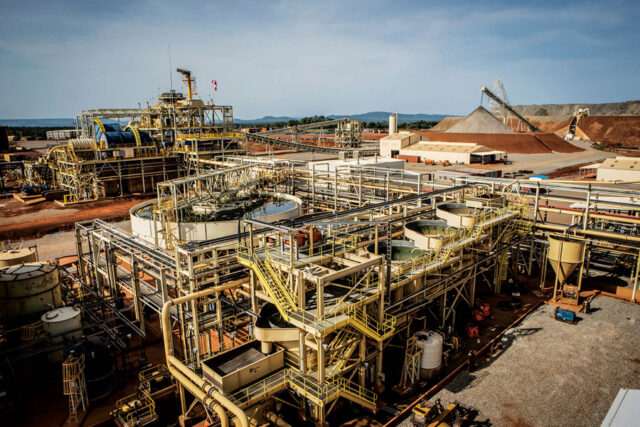
The Fekola Gold Mine. Image via B2Gold.
Burkina Faso – Bombore gold mine (Orezone Gold)
Since 2022, Burkina Faso’s military government has imposed several fiscal and security demands on foreign gold miners. These demands have significantly affected production plans and profit margins, especially for Orezone Gold (TSE: ORE) (OTCMKTS: ORZCF) at the Bomboré gold mine.
Bomboré is a low-cost, open-pit mine near Ouagadougou, expected to produce over 130,000 ounces annually. The mine began commercial production in late 2022, shortly after Burkina Faso’s second coup, placing it in a volatile and militarized environment.
In October 2023, the junta raised mining royalties, increasing the top bracket to 7 per cent from 5 per cent.
Then, in January 2024, it introduced a 2 per cent “security levy” on net profits to fund counterinsurgency efforts. The government did not consult miners and gave them little recourse.
Although Burkina Faso did not nationalize Bomboré, these measures cut Orezone’s cash flow and delayed expansion plans. Orezone publicly announced it is reassessing pit pushbacks and reordering capital expenditures.
This has delayed Phase 2 hard rock development despite progress. Additionally, debt restructuring slowed due to government-related uncertainty.
The junta justified these levies and royalty hikes as patriotic contributions to help restore national stability. Transitional leader Ibrahim Traoré indicated the government views gold assets as strategic tools for state survival, not just economic growth.
Furthermore, the government warned it might review permits held by foreign companies deemed “uncooperative.”
Burkina Faso has redirected part of Bomboré’s mine profits into state hands. It achieved this not through ownership but by escalating fiscal demands tied to political instability. For Canadian operators like Orezone, the key risks lie in the unpredictability and opacity of future policies.
Read more: NevGold closes its Nutmeg Mountain acquisition with Goldmining for $3 million
Read more: NevGold’s long intervals of antimony & gold mineralization turn heads
Ghana – Ahafo and Akyem Mines (Newmont Corporation)
In late 2024 and early 2025, Ghana introduced unexpected tax changes targeting large-scale miners, especially Newmont Corporation (TSE: NGT) (NYSE: NEM) (FRA: NMM), the country’s largest gold producer. These actions did not halt operations but significantly altered profit dynamics, delayed expansion, and triggered internal cost reviews.
Newmont operates two flagship mines in Ghana: Ahafo in the central region and Akyem in the east. Together, these mines produced over 560,000 ounces of gold in 2023, making Ghana one of Newmont’s key jurisdictions. The company is also advancing a major expansion at Ahafo North, with capital expenditures exceeding $800 million.
In November 2024, Ghana’s government passed its 2025 budget, which included a critical change: it tripled the Growth and Sustainability Levy from 1 per cent to 3 per cent of gross revenue. The government also extended the levy to 2028.
This levy applies to all large companies but hits mining hardest, as it is based on gross, not net, earnings. Newmont noted that, with gold prices near record highs, the levy alone could siphon off over $50 million annually from its Ghana operations.
In response, Newmont initiated a cost-optimization review, warning it might scale back future drilling, local hiring, and service contracts.
While production has not halted, the Ahafo North expansion, which is expected to add 275,000 ounces annually, is under scrutiny. This situation could affect not only mine output but also Ghana’s employment targets and GDP contributions from the mining sector.
The government aimed for immediate fiscal extraction by leveraging high gold prices amid rising sovereign debt and a recent IMF bailout. Instead of renegotiating contracts, Ghana chose to bypass miners’ stability agreements using broad budget legislation.
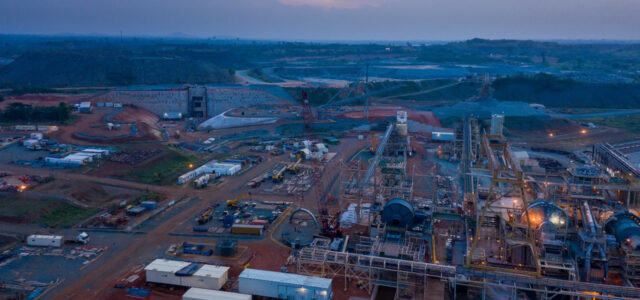
The Ahafo Mine in Ghana. Image via Newmont.
Namibia – Etango uranium project (Bannerman Energy)
From 2022 to 2024, Namibia’s government implemented assertive policies to increase state control and local benefits in its uranium and critical minerals sectors. These moves significantly impacted Bannerman Energy (ASX: BMN) and Deep Yellow Ltd (ASX: DYL) (OTCMKTS: DYLLF). Bannerman operates the advanced Etango uranium project, while Deep Yellow develops the Tumas lithium project. Both lie in Namibia’s Erongo Region, a hub for strategic minerals crucial to nuclear energy and battery technologies. These projects are central to Namibia’s goal to become a regional leader in these resources.
In June 2023, Namibia imposed an export ban on unprocessed lithium and other critical minerals. The government aimed to force foreign companies to build local processing plants. This ban delayed Bannerman’s and Deep Yellow’s plans to export concentrate and disrupted financing and development schedules. Simultaneously, the Ministry of Mines proposed legislation requiring a free-carry state equity stake in all new mining licenses. This policy, introduced in early 2023 and gaining momentum in 2024, meant the government would claim ownership without upfront payment, diluting shareholder value.
Market reaction was swift. Shares of Bannerman and Deep Yellow dropped by double digits in intraday trading after these announcements, reflecting investor fears about rising costs and operational limits. The export ban forced companies to revisit feasibility studies, adding capital costs for processing plants and lengthening project timelines. Furthermore, some drilling and resource development paused temporarily as firms awaited regulatory clarity. This uncertainty complicated financing, as lenders and investors evaluated heightened country risk and government leverage.
.

